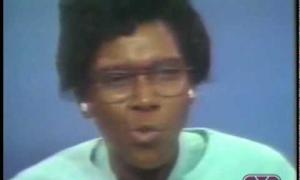More shoulders to stand on
August 14, 2012
It is beneficial to a beginner to write the speech out in full, but not to memorize it, as this will enable him to see what errors of diction and misuse of words he is liable to fall into, and it will also tend to make him expert in fitting the words to the framework. After becoming proficient in the writing of a speech, it is advisable to do away with this aid and merely marshal the facts mentally … —From Speech-making—Explicit Instructions For The Building and Delivery of Speeches, by Edwin Gordon Lawrence, 1911
Through Google Books and Archive.org, a wealth of 19th-century and early 20th century books about public speaking and the training of public speakers has been scanned and made available for free download by 21st-century speakers and speechwriters.
The advice in many of these books is clearly dated. However, I’ll go out on a limb and note in their defense that their authors had many more opportunities to observe speeches (both effective and ineffective ones), whether in court, church, elected bodies, board rooms, election campaigns, etc., than we typically do today.
The best of these books might therefore be seen as our last links to public speaking and speechwriting techniques tested in demanding arenas that—conceivably—might be of value to speechwriters in 2012.
For instance there are Philip Lawrence and Edwin Gordon Lawrence, a father/son team who produced an impressive stream of public speaking aids in the 19th and early 20th centuries.
Philip, a professor of elocution, seems to have divided his time between New York and Philadelphia; his son, Edwin Gordon, later opened the “Lawrence School” of acting in New York (which the younger Lawrence appears to have marketed also as a school for public speaking, depending on his audience).
The Lawrences’ published speech-making and speech-writing-related books include: The Lawrence Reader and Speaker—A Compilation of Masterpieces in Poetry and Prose (later updated and republished as The Lawrence Reciter); How to Master the Spoken Word; Simplified Elocution; and Speech-making—Explicit Instructions For The Building and Delivery of Speeches.
I won’t say that every page (or even every chapter) is golden, but those with patience will find useful nuggets.
A former editorial writer for Canada’s National Post, Neil Hrab made the transition from journalism to corporate communications and speech-writing in 2006. Since that time, he has written speeches for elected officials, political candidates and corporate leaders. Neil lives and works in Toronto.



